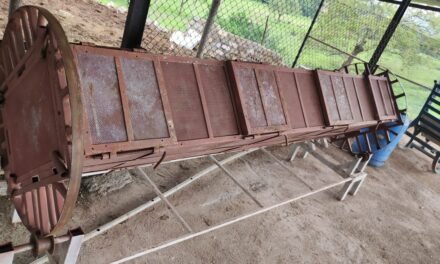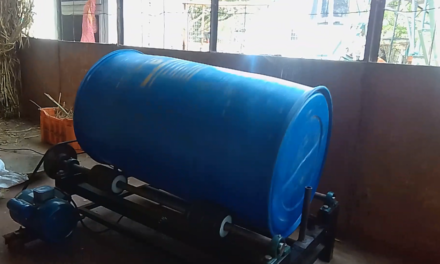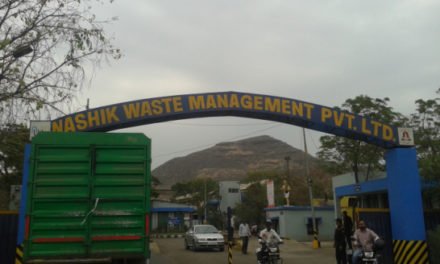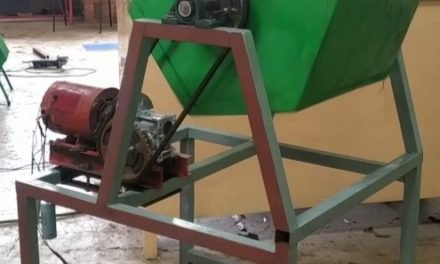Objectives:-
- To study the average amount of wet waste produced in a societies ( per flat per person ) and hotels.
- Introduce them to society composter.
- To study how people dispose of their household or kitchen waste.
- Survey to create awareness about our rack system
- To study the problems of people regarding composting and find a solution to it .
- Making a business case on crate system .
Background/Need of project:–
- A biodegradable solid waste is estimated to be 40 to 42% million metric tons for year 2021/22.
- Due to Urbanization this volume are on steep increase. This could be converted to compost to enrich soil and cut down carbon foot prints. This improper waste management in turns results in air & water pollution. Contaminated water poses threat to human health.
- Due to disease spread methane production and fire incidences like Deonar damp ground fire leads to panic situations.
Methodology:-
- We want to introduce our society composter to as many societies & hotels in Pune city & Pimpri Chinchwad area.
- We can go to the society & interact with watchman of the society and get information about how much waste management is done about the society.
- By talking to the president of the society, we will find out that he is facing some difficulties regarding the installation of society composter.
- We can go to the solid waste department and under standard the rules of the big society ragarding waste management there.
- Inthe areas of pimpri Chinchwad the people have become aware of the need for society compost.. Due to the fact that a large society have recieved the notice that their waste should be composted in their own permises. Hence, people there are looking for different ways of waste management. We can go there and let them know about society composter.
Introduction:–
Compost from societies
Around 60% to 70% wet waste produced daily in cities like Bangalore and Mumbai is wet waste or organic, biodegradable waste.
It is extremely illogical for this waste to be dumped into landfills if it can be treated at home or in the backyard. Not only does it reduce the pressure on landfills, but also proves to be profitable to societies and individuals.
Composting helps to dispose off wet waste in a productive way, creating sustainable gardens, and also provides the opportunity for societies to generate extra income by the sale of compost fertilizer. It enriches the soil quality, helping it retain moisture and reduces the waste volume handed over to the government, which is already struggling pitiably to process India’s phenomenal waste generation (1.50 lakh metric tonnes daily).
When the organic waste is decomposed, treated and recycled to create nutrient-rich soil fertilizer and conditioner, it’s called composting.
Tax benefits on compost wet waste produced by Housing society.
Housing societies that produce over 100 kg of waste and have an area of 20,000 sq meters are required not only to segregate dry and wet waste but also do on-site disposal. In cities like Mumbai, the government is offering a 3% property tax rebate to housing societies that compost wet waste and up to 7% rebate if a society gives zero garbage to BMC. Such heavy incentivisation could become the norm across the country if citizens actively participate in waste management self-starter initiatives. Other than that, there’s always a little profit to be made by selling organic compost in farmers markets or even online. Eventually, the OWC would pay for itself.
From October 2, the Pimpri-Chinchwad Municipal Corporation (PCMC) will not lift wet waste from as many as 700 residential societies that generate more than 100 kg waste. Instead, the civic body has asked the societies to segregate wet and dry waste and convert wet waste into compost within their premises.
PCMC Deputy Municipal Commissioner (health) Ajay Charthankar told The India Express, “We will not lift wet garbage from big housing societies that generate more than 100 kg waste per day, irrespective of the number of flats in the society.
There are over 5,000 residential housing societies in PCMC’s jurisdiction. Of these, around 700 have been classified as ‘bigger’ residential societies which generate more than 100 kg garbage every day. “Of these 700 societies, a little over 200 have set up their waste processing units. The rest are yet to take action despite being told several times,” he said, adding, “We have been sending notices to these housing societies since 2017. Notices were sent in 2018, 2019 and even in the last two years.”
He said in 2016, it was made mandatory under the Solid Waste Management Rules, 2016 for housing societies to segregate dry and wet waste and process them at their end. “After the rules came into force, the builders started providing space inside housing societies to convert wet waste into compost. However, despite the space, several housing societies failed to set up their own wet waste processing units,” he said.
Charthankar further said that societies set up before 2016 can either make space for setting up wet waste processing plants or can handover their wet waste to private parties. “These private parties charge some fees for converting the wet waste into compost. There is no capping on their fee. In turn, the societies can either use the compost for their gardens or can sell it off.
The Ministry of Urban Development had set an ambitious target of October 2019 for converting all organic waste generated in cities into compost or biogas, and marketing the compost with the help of fertiliser companies. The project has, however, run into hurdles with only about 1.6% of the total waste being composted.
composting will not only reduce the volume of waste to landfill/ dumpsite by converting the waste into useful by-products but also prevent production of harmful greenhouse gases [especially methane] and toxic material that pollutes groundwater apart from polluting the environment
However, observing that “farmers are not very keen to purchase compost, as by paying Rs 50 to Rs 60 extra farmers can purchase a bag of urea which has an immediate impact on the soil”, the committee said there was a need to use compost since it is “considered as a soil conditioner and its impact on the soil would only be visible after continuous use for two to three years.
The BMC sells the organic compost at Rs 20 per kg.
3 to 6 tonne
The six countries above have the highest recycling and composting rates in the world. Germany takes the cake, recycling and composting 65% of waste. South Korea is second best, ethically getting rid of 59% of its waste. Coming in close behind are Austria and Slovenia, which tie for third place at rates of 58%.
India exports most of it’s Compost manure to Maldives, Nepal and Kuwait. The top 1 exporters of Compost manure are India
Problems in composting :-
• Too much moisture. You might notice you have soggy compost and it’s starting to stink.
• It’s too dry.
• It’s attracting pests.
• It isn’t the right temperature.
• It smells bad.
• You can’t turn it.
● Compost fertilizer use after the whole composting process is completed many societies they have problem of selling the compost fertilizer as the farmers prefer urea or other organic fertilizers.
Data collection in Pune & Pimpri Chinchwad area.

Data collection in Pune & Pimpri Chinchwad area.
@abhishek-ahivale helped me to do the survey of the Society Comoposter in Pune & Pimpri Chinchwad.
On 12th SEP 2022:
An enquiry in Vigyan Ashram From Hotel Orchard Shivaji Nagar, Pune for Society Composter. Then we discussed with Dixit sir and we went to the Hotel Orchard (Shivaji Nagar Pune) And discussed our Plan about Society Composter with their maintenance person.
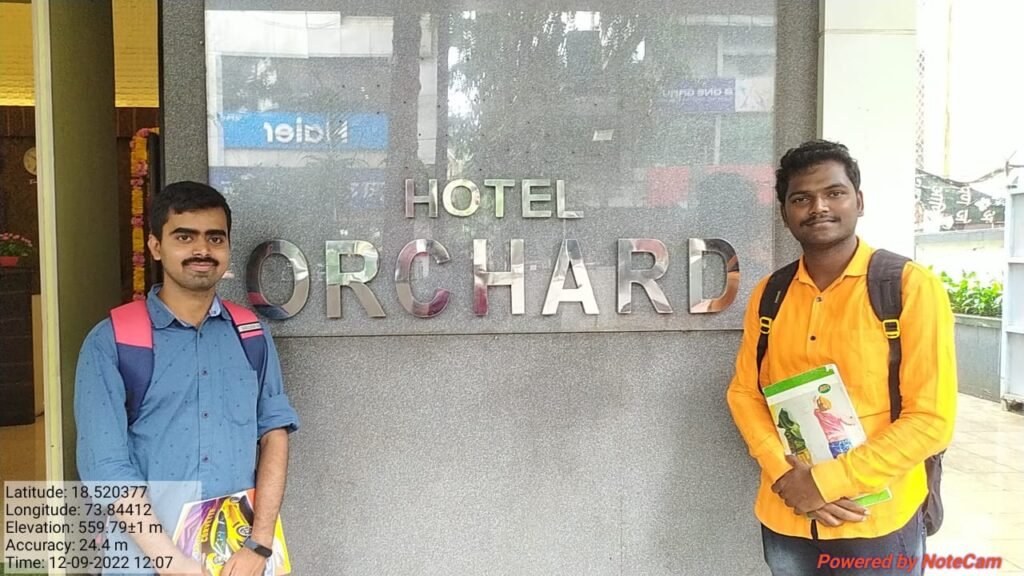
Orchard hotel has 30 rooms, this hotel provides food and accommodation to the customers. He said that a few days ago the received a notice from the municipal corporation that you should compost your wet waste here. So they wanted to compost their waste so they asked us for a Quotation.
We Observe that :-
- When the notice about waste management comes from the government office, the local people start thinking about composting the waste.
- He understood our plan well and asked us about our system where have you demonstrated the system before.
- They give their garbage to the municipal vehicle, but they don’t easily tell them how much have to pay for it.
- In places where there are very few trees, what to do with the remaining manure is a big question before hotels.
29/09/2022 to 01/10/2022:
03/11/2022 & 04/11/2022
16/11/2022 to 18/11/22
We completed our survey in societies and hotels of Pune City and collected so much information about composting and waste management system.
we prepared a Quotation:-


Result of survey:- The result of Society and hotel composter was great and I listed some key points that I observed and I think they are main reasons for less use of society composter in Pune.
1) People care about composting only when the Municipal Corporation makes it compulsory otherwise no one cares about this waste. They don’t care what Corporation does with there waste or how much damage it causes to the environment.
2) Some societies have made pits to compost there waste but I think that they are only for show because proper care of there system is not done I have seen that in many pits there were plastic thrown , these pits also sink, they were overflowing.
3) Many societies also given money to garbage collecters so that they could collect wet waste from the society and throw it somewhere else.
4) People or societies are given ₹70 /month to garbage collecters and hotels are giving maximum ₹700/ month.
5) Some society are having problems of space to set up a system. And some have problem in selling the compost outside.
6) Some people don’t care about waste and give very less response when it comes to manual system and time taken by the system to convert wet waste into compost naturally.
7) Some societies wanted us to be third party and collect wet waste from there society and treat it at Vigyan Ashram.
From the above observations I found that some of the main problem were initial capital, spare space for the system and to some extend manpower. In order to reduce all the three problem I decided to look upon another system at Vigyan Ashram which compost waste with the help of BSf ( black solder fly) and began to prepare a business case on it.
Our crate System (use of BSF) :-
1 Crate to be loaded with 5 to 6 kg of waste.
400 gm of 5 day old larvas
Spray bar culture 250 ml
Continuous this process for 10 days
Saw dust below create 10 kg sawdust
Weight the compost after 10 days
Feed this to chicken and weight the compost left after larva being consumed.
Requirments:-
For 5to 6 kg of waste daily
Plastic Crates (48 lit) 540 360290 = ₹508
400 gm of 5 day old larvas = ₹5000
Spray bar culture 250 ml= ₹50 / lit
150 kg requires 2.4 kg of larva ( 5 days old)
150 kg requires 150* 0.3 = 45 kg Sawdust
45 kg of sawdust cost 45* 5 = ₹225 High cost due to sawdust
For 150 kg waste we need 1 kg 5d larva, cost of material i.e feed is INR 12. Once these 5 days larvae are added to garbage in 20 days we get pre pupa and puppa which end up in flies and eggs i.e, we can get 1 kg larva in INR 12.
For 100 kg we need 10 INR.
For 1000 kg need 100 INR
For 6000 kg of garbage need 600 INR
Costs in detail:-
1 gm eggs cost ₹150
1 kg 15 days larva ₹250
1 kg 5 days larva ₹1200
For 100 kg we need 10 INR.
For 1000 kg need 100 INR
For 6000 kg of garbage need 600 INR
Cost of bringing the larva 1 trip ₹500
Cost of bringing the larva 2 trip ₹1000
Cost of transportation of compost ₹3000
Total cost expenditure 1000+3000+600=4600
Service charges 6000 * 2= ₹12000
75 kg larva 20 days old 72*20= ₹1400
2000 kg compost 4 Rs /Kg= 8000
Total income= ₹21400
Profit at o man power cost= ₹16800

Orchid Hotel Apte Road Proposal
600 kg of wet garbage/ month
Input cost 4 kg of 5 days old larva Cost INR 30
Sugarcane bagasse powder 300kg Cost INR 300
Transportation cost 3 trips by Car Cost INR 1100
Cost of Chicken feed (wheat 25 INR) Cost INR 1320
Total 1430 (2730)
Output
60 kg of 25 days old larva Cost INR 1200
40 kg ( 60kg) chicken(100) Cost INR 4K (6 K)
Compost 500kg Cost INR 2000
Service charges Cost INR 1800
Total 5000 (9800)

One society 200 flats 100 kg waste per day Calculation Dated 18 Oct 2022
0.75 kg 7d larva to be added for 150 kg of waste
For 100kg waste need 500g 7d larva a added
100 kg waste is 10 to 12 kg of dry waste
1 kg larva = 1000/0.076 = 1,31,580
Cost of feed for 1,31,580 is 6.31 INR
Cost of feed for 100 kg larva cultivation is 4.00 INR
Cost of feed for cultivation of larva for 1 kg of waste is 4.20 paise approx 5 paise
50 kg of waste gave 6.080 kg of 17d Prepupa larva feed done 15 days.
Dry weight of perpuppa is 60 %
Assuming selling price of 40 INR, on a dry weight basis. We got 12 kg of perpuppa from 100 kg of waste. I.e 7.2 kg of dry weight resulting in 288 INR
Expecting 40 kg of compost with addition of 40 kg of sawdust.
This is with data (trial dated 24 Sep 2022) we got for 50 kg of wet waste giving us 5 kg of compost without addition of saw dust
Cost of sawdust inr 4 /kg, resulting in 160 INR expenditure
Selling cost of compost with 25 % moisture is assumed to be INR 10/kg
We expect to earn INR 400 for compost
100 kg of waste will come from 200 flats and expecting revenue of INR 1 / flat will lead to earning of INR 200.
Transportation cost INR 1 per kg of waste. I.e INR 100 as expenditure
Expenditure for culture is INR 2
Net balance Earning 288+400+200=888 Net expenditure = 262 Net earning = 626/day
Per month 18780
For Kumar Padmalaya 3000 kg wet garbage/month
Profit without depreciation and labore = 18850 (35350)
10 such societies make good business.

Conclusion :-
1) We got to learn many things from the survey and got to know people’s and government approach to waste.
2) We found out how much wet waste is collected from each society per flat per person and also found hotel waste collection for each day.
3) We made people aware about Vigyan Ashram’s composting system ( Rack and Crate system both)
4) We found out the problems of people regarding composting
5) Made I business case on Crate system which is cost effective ,requires less space and less manpower.
Thank You…


